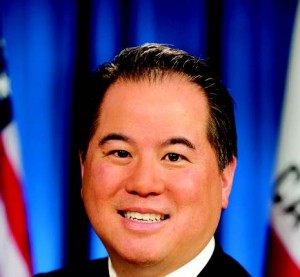 For those who think “separate but equal” laws are a thing of the past, consider the newness of marriage equality (for some), or the ongoing plight of our immigrant communities with limited English proficiency.
For those who think “separate but equal” laws are a thing of the past, consider the newness of marriage equality (for some), or the ongoing plight of our immigrant communities with limited English proficiency.
Imagine being sick and unable to communicate with your doctor about where it hurts. With modern medical treatments changing the practice of medicine today, imagine being unable to understand your pharmacist’s instructions for taking your medications.
In pharmacy circles, the story of “once” shows how language barriers can undermine the delivery of care.
A doctor prescribes a patient a 30-day supply of pills, but the patient returns for a refill just three days later. The patient says he took the pills exactly as instructed on the bottle: 11 daily. The pharmacist looks at the bottle, which says “take once daily.” But “once” also means 11 in Spanish. The patient therefore followed the instructions, in Spanish.
This example illuminates why patients with limited English proficiency report being less satisfied, less likely to understand medication instructions, and more likely to have problems adhering to their medication regimens. It also shows the risks facing over forty percent of residents in San Francisco and Alameda Counties, as well as over 6 million Californians.
In order to improve healthcare for our immigrant communities, my Assembly Bill (AB) 1073 requires the California Board of Pharmacy—the professional licensing and enforcement body for pharmacists—to post standard translations online about prescription medications in multiple languages besides English. Pharmacists would be required to use them, unless they already translate instructions for their patients.
This legislation will restart a stalled program where the Board created written translations in Chinese, Korean, Russian, Spanish and Vietnamese, but they sat unused. This cannot stand. Everyone should get the same treatment by having written information about their medications.
My community in San Francisco has adapted to the failure of mainstream healthcare networks to adequately serve the Chinese Community. Now, we see a network of clinics operated by groups such as Chinese Hospital, North East Medical Center, and Self Help for the Elderly. Not every community in our state is so fortunate.
Despite California’s status as the most linguistically diverse state in the nation, state law only requires that pharmacists offer oral interpretive services to their non-English speaking patients. My legislation offers a sensible solution. More importantly, it ends the separate but equal system codified in current pharmacy practices. That makes passage of AB 1073 a matter of civil rights.
As Obamacare brings affordable health insurance to more Californians, we must ensure that it leads to healthcare access. That requires effective communication between patients and medical professionals.
By ensuring that patients understand how to take their medications, we can save lives and improve healthcare for millions of people. It’s time for California to have an equal standard of patient care regardless of language ability.
For further information, please visit my website at www.assembly.ca.gov/ting
Phil Ting represents the 19th Assembly District, which includes the Westside of San Francisco.
Recent Comments